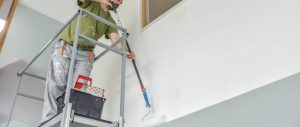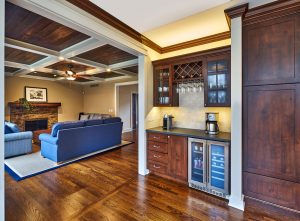Michigan Supreme Court Refuses to Hear COVID Shutdown Damage Cases
In a noteworthy decision, the Michigan Supreme Court has refused to consider appeals in three separate cases concerning the impact of COVID-19 related shutdowns. The cases had been launched by businesses and college students seeking compensation or partial refunds due to the negative impact of the shutdowns.
Businesses Seek Compensation
The Gym 24/7 Fitness in Alma, which had been shut down due to the state of emergency declaration in 2020, sought damages for the adverse effects of state-ordered COVID-19 shutdowns. The local gym tried to reopen in May 2020, but was shut down again by local law enforcement. Their lawsuit claimed losses due to the closure. While initially, the Court of Claims allowed the case to advance, the state Court of Appeals overturned the decision.
The court stated that the Gym did not provide evidence of a total loss or complete eradication of value due to these executive orders. Furthermore, the court found the relatively short-term nature of the closures did not make for an unjust taking of The Gym’s property and the government’s need to curb the pandemic was of paramount importance.
In another case, Mount Clemens Recreational Bowl, Inc., KMI Inc., and Mirage Catering, Inc., which serve food and drinks, filed a lawsuit in 2021. They asked for compensation due to the restrictions that followed restaurants reopening, including reduced capacity. The court dismissed the case citing the ruling in The Gym’s lawsuit as a precedent.
Students File Lawsuits
Students from Central Michigan University, Eastern Michigan University, and Lake Superior State University also filed lawsuits in 2020. They requested tuition refunds arguing that online learning was less valuable than in-person education for which they had paid. They also asked for reimbursement for the portions of room, board, and fees unused.
Again, the Court of Claims dismissed these cases, and the Court of Appeals upheld the decision. The court reasoned that the students didn’t show that the universities had breached any contractual agreements with them.
Dissenting Voices
Two justices of the state Supreme Court, David Viviano and Richard Bernstein, disagreed with the majority’s decision not to consider appeals in the three cases.
Viviano expressed concerns over unresolved questions pertaining to federal and state takings jurisprudence in The Gym’s case, while he felt that the courts had fundamentally misunderstood the agreement between universities and students in the cases involving students. “The schools’ obligations to provide certain types of classes is controlled by an implied contract based on the registration materials, historical practice, and other relevant evidence,” Viviano wrote in his dissent.
A National Trend
Several similar cases have emerged around the country but have largely been unsuccessful. However, there was a breakthrough this month when the U.S. Court of Appeals for the Federal Circuit allowed a case filed by landlords seeking compensation for earnings lost due to the federal COVID-era eviction freeze to proceed.
The ruling by the Michigan Supreme Court continues to highlight the complex legal territory surrounding shutdowns and restrictions during the COVID pandemic. It also underlines the ongoing challenges for businesses and students navigating and adjusting to the profound shift in societal conditions during these unprecedented times.











